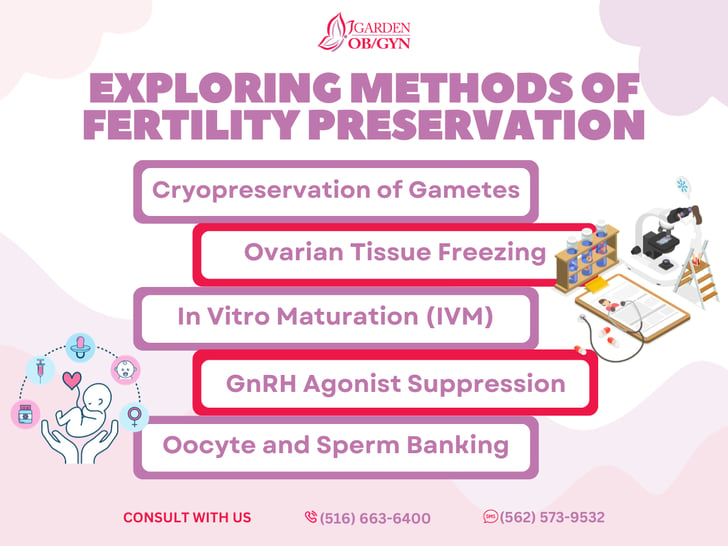Exploring Methods of Fertility Preservation
Fertility preservation offers hope to those at risk of infertility due to medical treatments or other factors. This article explores key methods and their promise.

Fertility preservation is a critical concern for individuals who face the prospect of infertility due to medical treatments, age-related factors, or other circumstances. Fortunately, advancements in medical science have brought about an array of methods for safeguarding fertility. These methods offer individuals the possibility of having biological children in the future when they may not have the immediate option. In this article, we will delve into some of the most prominent methods of fertility preservation, their applications, and the hope they provide for those facing fertility challenges.
1. Cryopreservation of Gametes
Cryopreservation, also known as freezing, is one of the most well-established methods of fertility preservation. It involves freezing eggs, sperm, or embryos at extremely low temperatures to prevent cellular damage. This method is often employed by individuals facing cancer treatments that may harm their fertility. Women can freeze their eggs, while men can preserve their sperm. Additionally, couples seeking to delay parenthood can freeze embryos.
2. Ovarian Tissue Freezing
For individuals who need to preserve fertility quickly, such as before cancer treatments, ovarian tissue freezing is an option. This method involves surgically removing a piece of ovarian tissue and freezing it. The tissue can later be re-implanted, potentially restoring fertility. Ovarian tissue freezing offers an advantage because it is not dependent on the ovarian function before preservation.
3. In Vitro Maturation (IVM)
In vitro maturation is a fertility preservation method that is particularly suitable for women with polycystic ovarian syndrome (PCOS) or other hormonal imbalances. Immature eggs are collected and allowed to mature in a laboratory setting. Once matured, these eggs can be frozen for future use. IVM can be less time-consuming and less expensive compared to traditional IVF, making it a viable option for some.
4. GnRH Agonist Suppression
Gonadotropin-releasing hormone (GnRH) agonist suppression is a method primarily used to protect the fertility of individuals undergoing chemotherapy. It involves temporarily shutting down the reproductive system to minimize the damage caused by the cancer treatment. This method is especially beneficial for prepubertal children and adolescents, as it can help protect their future reproductive potential.
5. Oocyte and Sperm Banking
Oocyte banking (egg freezing) and sperm banking are common methods for fertility preservation. Oocyte banking is popular among women who wish to delay childbearing for various reasons, including career goals and personal circumstances. It allows women to freeze their eggs when they are in their prime reproductive years and use them later when they are ready to start a family. Sperm banking is a method for men to preserve their fertility potential and is often used by those facing treatments like radiation therapy or chemotherapy.
6. Ovarian Suppression
In cases where individuals are at risk of premature ovarian failure or wish to delay menopause, ovarian suppression can be employed. This method involves medication to reduce the activity of the ovaries and may help extend the window of fertility. It is commonly used by transgender individuals seeking to preserve their fertility before hormone therapy.
Fertility preservation methods offer individuals a glimmer of hope in the face of potential infertility. Whether it's due to medical treatments, age, or other factors, these techniques empower people to take control of their reproductive future. As technology and medical science continue to advance, the field of fertility preservation is likely to evolve, offering even more innovative solutions. This progress ensures that more individuals can have the opportunity to become parents on their own terms, contributing to a brighter, more inclusive future for families around the world.
































